In an interview with +972, the Hague representative of Al-Haq, a Palestinian human rights group, talks about the slew of threats she and her organization have received for months, and why she believes the Israeli government is behind them.
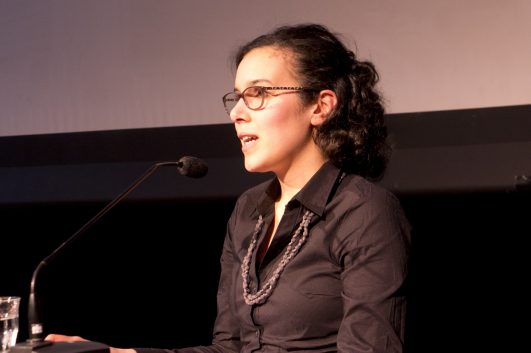
In a small ceremony in The Hague on April 1, 2015, the Palestinian Authority officially signed the Rome Statute, the legal covenant enabling the prosecution of individuals at the International Criminal Court (ICC) on charges of war crimes and crimes against humanity. Saeb Erekat, the PA’s chief negotiator, called it “a historic day in the struggle for justice, freedom and peace for our people and all those seeking justice worldwide.”
A few months later, four Palestinian human rights organizations – Al-Haq, Al Mezan, Aldameer, and the Palestinian Center for Human Rights – submitted communiqués to the ICC detailing numerous counts of suspected war crimes committed during the 2014 Gaza War, codenamed “Operation Protective Edge” by the Israeli military. Raji Sourani, Director of PCHR, stated that “Israel is unwilling and Palestine is unable to domestically hold to account Israeli perpetrators of international crimes. We need the ICC to break the cycle of impunity.”
The four organizations anticipated a backlash from Israel, which made no secret of its hostility towards the Palestinians’ attempt to pursue an international legal track to seek accountability. What they didn’t anticipate was how severe that backlash would be.
Since September 2015, several of the organizations have faced ruthless smear and intimidation campaigns seeking to discredit them and stoke insecurity among their staff. The harassment culminated in death threats made against two individuals: A senior Palestinian advocate in Al Mezan, whose identity has been kept confidential but who will be discussed in Part II of this series; and Nada Kiswanson, 31, a Palestinian-Swedish lawyer who is Al-Haq’s representative in The Hague.
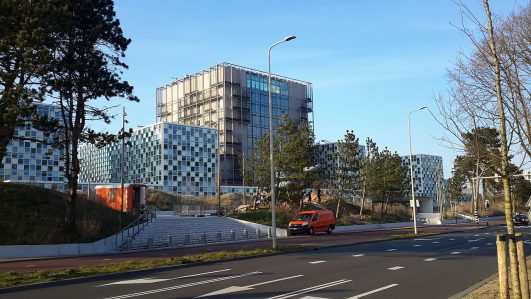
Although the death threats began in February 2016, Kiswanson initially kept a low profile, concerned first and foremost for the safety of her family including her husband and two-year-old daughter, and in the hope that the Dutch authorities would find the culprits immediately. But the authorities still haven’t tracked them down, and the attacks only escalated. Kiswanson finally went public about her case last week.
The Dutch newspapers that first covered the story highlighted a few examples of the threats. In late February, Kiswanson received obscure phone calls from people calling themselves “Rami” and “Abu Rami,” who contacted Kiswanson and her family and left threatening messages in broken and accented Arabic: “If she doesn’t stop her work, we’ll eliminate her off the face of the earth,” “Honey, you are in grave danger,” and others. In May, flyers were distributed throughout Kiswanson’s larger neighborhood claiming Al-Haq was “working to strengthen the Islamic base in the country.” In July, “Rami” reached Kiswanson through a family member’s phone number while she was visiting Jordan. Earlier this month, “Abu Rami” contacted Kiswanson through an encrypted messaging platform she was using and told her that she was “not safe at all and hopefully this will remain.” These are only glimpses into the threats she has been getting on an almost weekly basis for the past six months.
Kiswanson and Al-Haq have little doubt that Israel is behind these attacks. “This was a reason why I went public,” she told +972. “A criminal investigation [by the police] is not enough…this issue is in need of political intervention.”
Israeli officials who were asked by Dutch newspapers to comment on the case have flatly denied any knowledge or involvement. A spokesperson at Israel’s Ministry of Foreign Affairs called the allegations “absurd,” while another added, “Threats via telephones? That sounds like nonsense. That’s not how we work. If we have a legal problem with someone’s work, we take them to court. I don’t think this is worth an article.”
+972 begs to differ.
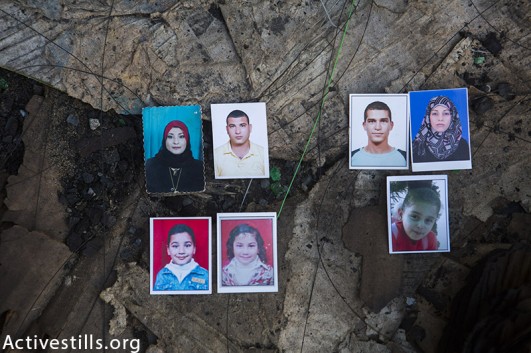
Deliberate, strategic choice
+972: This wave of attacks first began in September 2015 against Al-Haq as a whole, but then it shifted to targeting you specifically. Why do you think this happened?
Kiswanson: The attackers’ initial strategy was to try to undermine the support and credibility of the organization itself. Emails were sent to our donors and partners, with some pretending to be Al-Haq staff members claiming that they were too afraid to criticize or speak out against the organization. But the attackers realized early on that this strategy was failing; none of the donors and partners bought the lies, and the staff was firmly behind the organization. So the attackers decided instead to try intimidating and dissuading individual staff members from continuing their work, to break and weaken Al-Haq’s capacity internally.
How often are you receiving these death threats?
For the first two months there were threats almost every week. I received strange texts on my phone and my email account sent itself ominous messages. I would get phone calls that were silent on the other line or that hung up before I picked up. I bought new prepaid phones with new numbers, and as soon as I had used them, I got calls and texts to those phones with the same threats. That aspect in particular indicated that I was under heavy surveillance by an actor with strong intelligence capabilities. Emails would also be sent to Al-Haq’s email group saying that I wasn’t loyal to the organization’s “ideology,” thinking they could turn the staff against me. They basically used every channel they could to reach me in multiple countries – in the Netherlands, in Jordan, anywhere in Europe. I’m still receiving these threats every two to four weeks.
Why are the threats focusing on you as an advocate based in The Hague? Why aren’t they doing the same to your colleagues based in Palestine?
At first glance it seems strange that they are coming after me; I’m not the face of the organization nor its General Director. But there’s a reason these attacks are happening in Europe and not in Palestine. Our work on the ground – in raising human rights awareness and strengthening the Palestinian community against the occupation – is not Israel’s biggest concern at the moment. Israel is, of course, continuing to obstruct and silence dissent in Palestine through arrests, incitement, laws, and other methods, but this has not stopped our work and we are still operating actively.
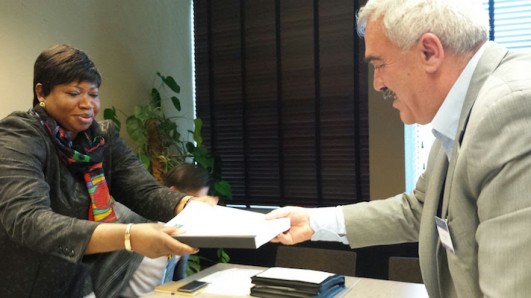
Israel’s biggest concern, however, is how Al-Haq and other human rights groups are portraying the state to the world. Israel is worried about the fact that we are mobilizing the international community to act against the occupation, and in particular through legal mechanisms such as the ICC. The Israelis know that what they’re doing is inconsistent with international law, including the Rome Statute, and we have compiled and submitted extensive evidence to prove it.
The strategy behind the current attacks is therefore to cut the link between Palestine and Europe, including The Hague, when it comes to human rights advocacy and the pursuit of accountability. The Registrar of the ICC spoke to this effect in response to my case, saying that “an attack against an NGO indirectly undermines the work of the court.” This is why the decision to target me was a deliberate, strategic choice, because Israel knows that even if they harassed my colleagues in Palestine, it won’t stop my work and presence here in The Hague.
Global Reach
And you believe that Israel is behind these threats?
Yes. Al-Haq has been targeted and harassed by the Israeli authorities for years. And there’s no debate that Israel has the biggest motive, experience, and capacity to carry out this kind of relentless campaign. We’re dealing with an actor that has a global reach and is unashamed and extremely comfortable with operating in territories outside its own. A hacker could pretend to be present in several countries, but the sheer amount of effort that has been put into attacking the organization, and ensuring that they can access me in any part of the world and through any method, is not an indication that this is just some group of people who have a grudge against me.
The people behind these attacks have been clever in making it easy for pro-Israel supporters to dismiss the threats as acts of crazy people. But when you see all the threats, and the sophistication and technology needed to pull them off – such as reaching me on prepaid numbers and making their sources untraceable – it is clear that this is being done with government backing. It takes a lot of technical power and political arrogance to do this.
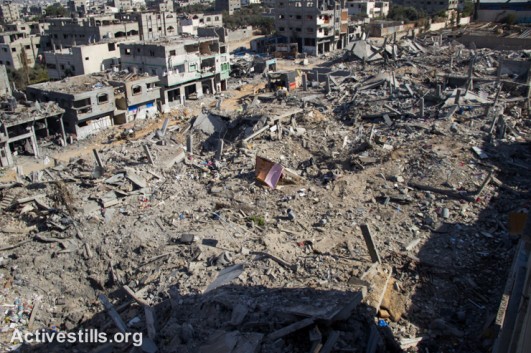
As you mentioned, the tactics we’re seeing against Al-Haq today seem more sophisticated compared to the blatant methods often used against other Palestinian human rights activists. Why do you think this is the case?
In the past, Israel would just detain human rights defenders and sometimes even torture them. This still happens of course, but the situation has changed somewhat: Palestinians have been able to mobilize extensive international political and media attention towards the occupation and the people fighting against it. It’s much harder for them to detain someone like Al-Haq’s General Director to try to silence him; if anything that would just make Al-Haq stronger.
At the same time, Israel is still intensifying its campaign against human rights organizations and activists. This has especially been the case since the 2009 Goldstone Report that investigated Operation Cast Lead in Gaza [2008-2009], because human rights organizations are showing that they are playing a more crucial role and exerting a greater degree of influence on behalf of the Palestinian cause. The impact and changes we’ve had on Europe in the past few years, for example, shows that these organizations can’t be seen negligible.
So Israel is still trying to achieve the same goals, but with smarter and different tools. They’re passing laws under the guise of “transparency;” they’re trying to undermine organizations’ financial and political credibility; they’re inciting against human rights and anti-occupation discourses to turn the Israeli public against them. The post-Goldstone changes were a learning process for Israel, and it’s now implementing its new strategies to counter them.
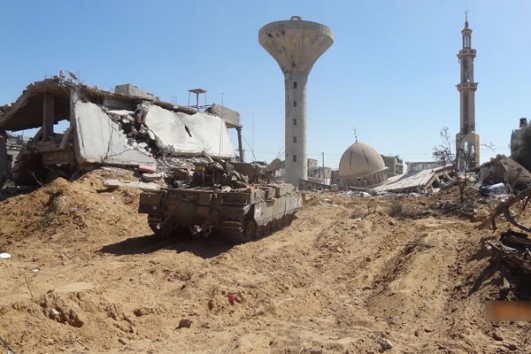
This sounds similar to the crackdown today on BDS and pro-Palestine activism in Israel and various countries through laws, pressures, and demonization of anti-occupation activists.
Exactly. Israel doesn’t make a distinction between human rights organizations and the BDS movement. For the state, they’re one and the same because they are exposing to the world what is happening on the ground in Palestine and Israel. You now have Israeli officials from Prime Minister Benjamin Netanyahu to Justice Minister Ayelet Shaked to Public Security Minister Gilad Erdan who have openly stated that they view both BDS and human rights groups as strategic threats that require strategic responses. Any kind of activism to help Palestinians is therefore a target.
What do you think must be done to end the threats against you?
We are at the stage where this issue is in need of political intervention. European countries need to realize that they have been a part of making Israel feel that they have the impunity to repress Palestinian activism whenever and wherever they wish. They know that Israel has intelligence operations in their countries, and some are probably giving their consent for those activities. None of them are telling Israel that Europe isn’t a place to act as they will, that there are consequences for threatening and delegitimizing basic human rights work.
This was one reason why I went public about the threats against me. A criminal investigation is not enough; I went to the Dutch police in February, and the threats have only escalated since. Israel is trusting that people will be ignorant of what is happening, and that they won’t ask questions. It’s time for governments to speak out and say this is unacceptable.
This is the first in a two-part series about the attacks against Palestinian human rights defenders working with the ICC.
Full disclosure: The interviewer is a friend and professional associate of Kiswanson as an advocacy coordinator at Adalah. This interview was done strictly in a personal capacity as a writer on +972.

